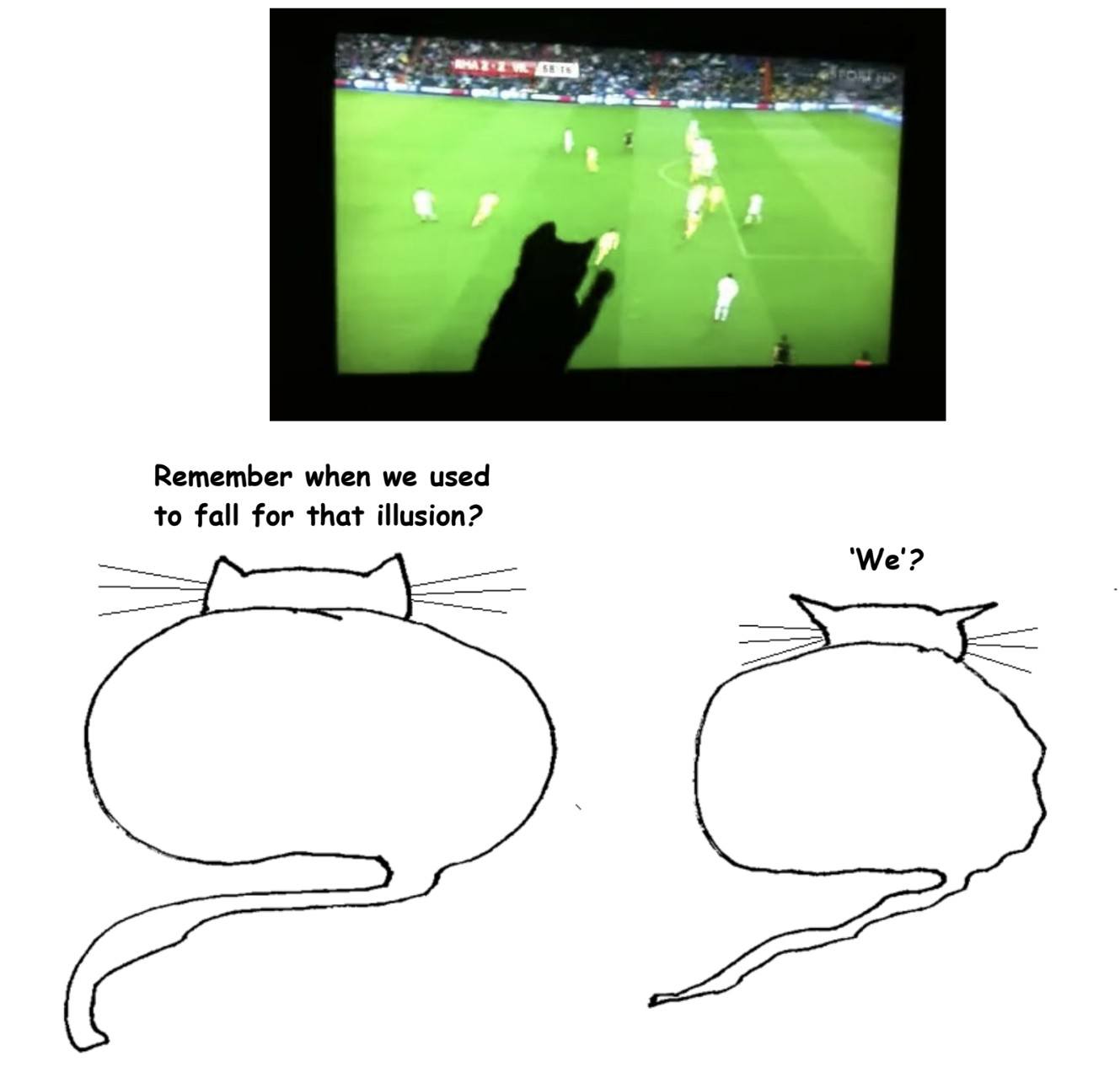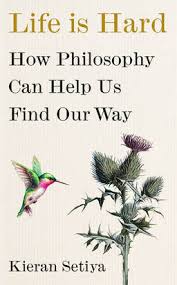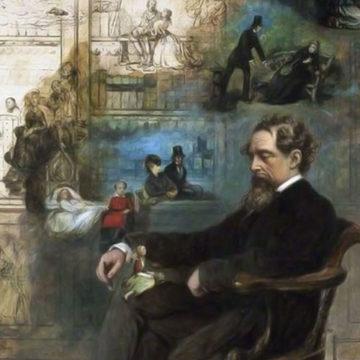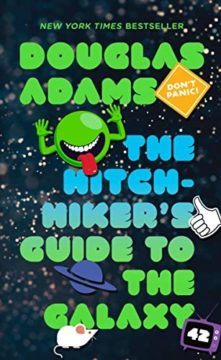by Brooks Riley

Though we are an aggregator blog (providing links to content elsewhere) on all other days, on Mondays we have only original writing by our editors and guest columnists. Each of us writes on any subject we wish, and the length of articles generally varies between 1000 and 2500 words. Our writers are free to express their own opinions and we do not censor them in any way. Sometimes we agree with them and sometimes we don’t.Below you will find links to all our past Monday columns, in alphabetical order by last name of the author. Within each columnist’s listing, the entries are mostly in reverse-chronological order (most recent first).
by Brooks Riley

by R. Passov

There was a big earthquake in the San Fernando Valley in 1971. Overpasses fell in the north end. People died. My junior high school was closed for two weeks.
I was in the 7th grade and had just begun to hang around a boy named Mark. During recess or lunch, we’d walk to the back of a field of grass and smoke cigarettes. Sometimes, if she were in school, we’d stand next to Mark’s older sister, Sharon.
A few days after school was closed, Mark said that I should join him selling candy for Dave Katz. Dave was college-age at the time. He lived in the garage of his parents house and earned his living rounding up boys and taking them all over Los Angeles to sell candy. We were told to say we were trying to earn enough money to go to a boys camp and could you help us out by buying a box of candy. Dave got the candy from a local supermarket.
For most of the two weeks that we were out of school, Dave would pick me up at around 7:00 AM. By the time he got to my apartment, his 1971 Dodge Charger was full. I’d force my way into the back and sit on laps. Our first stop was breakfast. As many as nine would get out of the two door Charger which had bucket seats in front.
We’d eat as if we were just out of juvenile hall. Sometimes, we’d pay the bill by each leaving our share in our water glass. We’d put a place mat over the glass, turn it upside down, rest it on the table, then slide the place mat away. Other times, we’d simply get up in mass and rush the door. Read more »
by Michael Liss
 The word arrived from the furniture store. They have come! After five months of supply-chain suspended animation, our 15 feet of 72-inch-high bookcases are here. Bibliophiles everywhere (well, everywhere in my family) raised their voices in praise.
The word arrived from the furniture store. They have come! After five months of supply-chain suspended animation, our 15 feet of 72-inch-high bookcases are here. Bibliophiles everywhere (well, everywhere in my family) raised their voices in praise.
I’m excited. Seriously excited. My wife, son, and daughter are excited. While we already had a number of bookshelves and built-ins, their capacity was vastly exceeded by the books at hand. Those “loose” books were everywhere; turned flat, double-shelved, stacked on tables and desktops and chairs and nightstands. A shameful number of them were in boxes, embarrassed (you could hear them grumbling at times) that they were less loved. Some, even, had been exiled to a storage facility, enveloped in quiet beyond the whirr of ventilation systems.
Simple humanity cried out for a solution. Now, liberation was close at hand. The day after Thanksgiving (how’s that for a Providential intervention?), two strong men brought our prizes.
I was not there to witness this, needing to go to the office for a few hours, but my wife was, giving me play-by-play and texting me pictures. Wondrous, fantastic, spectacular. My mind wandered from the work-related tasks at hand. I fought it back with the idea that the sooner I got things done, the faster I would see the mighty oaks and start to grapple with the critical decisions of what went where. I escaped as soon as I could, leaving the strategic “out of the office for the holiday” auto-response on email. Read more »
by William Benzon, with the assistance of ChatGPT
It’s that time again. You may have heard about it, you may even have played with it. Another AI engine has dropped! – one of those black boxes that Tim Sommers talked about last week. This one is called ChatGPT and, as its name indicates, it’s a close relative of GPT-3, which set off shockwaves when it dropped in the summer of 2020. It was difficult for ordinary mortals to get access to GPT-3, but anyone can sign up for a free account on ChatGPT, and so I did, on December 1, the day after it dropped.

Since then I’ve having a lot of fun playing with it. I’ve chatted with it about brass instruments, trumpets in particular, though I had to work a bit to get it to cough up information about Bud Herseth, one of the most important orchestral trumpeters of the last half-century. We had a long and engrossing exchange about Godzilla: King of the Monsters, and Gojira, the original Japanese film from 1954. I even coaxed it into writing a parody of “Kubla Khan” that managed to pwn [sic] Donald Trump.
But I want to tell you about our “conversation,” if you will, about Steven Spielberg’s Jaws and the ideas of the late Rene Girard. As you may recall, I published a 3QD article about subject earlier this year, Shark City Sacrifice: A Girardian Reading of Steven Spielberg’s Jaws. So I’m familiar with the topic.
Of course, when I did my work, I started by viewing the film, several times in fact. ChatGPT didn’t do that; as far as I know we don’t have any AI system that could view a feature-length film and create a competent summary of the plot much less offer an interpretation of it. However, Jaws is well known and there is a great deal about it on the web, including several different scripts, though I have no idea whether or not any of those scripts were in ChatGPT’s training corpus.
With that in mind, pour yourself a drink and get comfortable, for this is going to take a while. Read more »
by Andrew Bard Schmookler
[This is the sixth and final entry in the series I’ve offered here.]
Please Permit Me to Talk as if Compelled by Truth Serum
It’s an awkward position to be in. Much of what I’ve spent more than a half century creating would likely die with me if I died now. Which would be no big deal except that I have long strongly believed it could prove valuable to a human future I care deeply about.
That has driven me, in my mid-70s, to throw caution to the wind. Which means doing everything in my power to get this creation of mine out into the world far enough that it would survive my own death.
The awkwardness involves my having come to the judgment that this “everything” includes my making claims that some may dismiss as grandiose. But my conviction of the validity of those claims compels me to take that risk.
What I feel impelled to get out into other people’s minds – so it would not die with me – is what I call an “integrative vision” for understanding the human story: a way of seeing things whole that has important implications for how we see ourselves as a species, how we understand what we see in the pages of human history, and how we perceive the challenges humankind must meet if our civilization is to survive for the long haul.
For a while, I tried to resign myself to the reality that, despite my efforts, most of that “integrative vision” would disappear with me. That would have worked, had I been able to look at it just in terms of my life, and my desires. I’ve had my share of wishes come true.
But that’s never been what it’s mostly about. Since the first big piece of that integrative vision came to me in 1970, I have always been driven by the conviction that there was something here that might help humankind survive for the long haul, rather than end our species’ story in self-destruction. Read more »
by Tim Sommers

My wife Stacey is irritated with the way Netflix’s machine learning algorithm makes recommendations. “I hate it,” she says. “Everything it recommends, I want to watch.”
On the other hand, I am quite happy with Spotify’s AI. Not only does it do pretty well at introducing me to bands I like, but also the longer I stay with it the more obscure the bands that it recommends become. So, for example, recently it took me from Charly Bliss (76k followers), to Lisa Prank (985 followers), to Shari Elf (33 followers). I believe that I have a greater appreciation for bands that are more obscure because I am so cool. Others speculate that I follow more obscure bands because I think it makes me cool while, in fact, it shows I am actually uncool. Whatever it is, Spotify tracks it. The important bit is that it doesn’t just take me to more and more obscure bands. That would be too easy. It takes me more and more obscure bands that I like. Hence, it successfully tracks my coolness/uncoolness.
The proliferation of AI “recommenders” seems relatively innocuous to me – although not to everyone. Some people worry about losing the line between when they just like what the AI recommends to them, and when they adapt to like what the AI says they should like. But that just means the AI is part of their circle of friends now, right? It’s the proliferation of AIs into more fraught kinds of decision-making that I worry about.
AIs are used to decide who gets a job interview, who gets granted parole, who gets most heavily policed, and who gets a new home loan. Yet there’s evidence that these AIs are systematically biased. For example, there is evidence that a widely-used system designed to predict whether offenders are likely to reoffend or commit future acts of violence – and, hence, to set bail, determine sentences, and set parole – exhibits racial bias. So, too several AIs designed to predict crime ahead of time, to guide policing (a pretty Philip K. Dickian idea already). Amazon discovered, for themselves, that their hiring algorithm was sexist. Sexist, racists, anti-LGBTQA+. anti-Semitic, and anti-Muslin language is endemic among large-language models. Read more »
by Ashutosh Jogalekar

It’s Thanksgiving weekend here in the U.S., and there’s an informal tradition on Thanksgiving to give thanks for all kinds of things in our lives. Certainly there’s plenty to be thankful for this year, especially for those of us whose lives and livelihoods haven’t been personally devastated by the coronavirus pandemic. But I thought I would do something different this year. Instead of being thankful for life’s usual blessings, how about being thankful for some specific facts of nature and the universe that are responsible for our very existence and make it wondrous? Being employed and healthy and surrounded by family and friends is excellent, but none of that would be possible without the amazing unity and diversity of life and the universe. So without further ado and in no particular order, I present an entirely personal selection of ten favorites for which I am eternally thankful.
I am thankful for the value of the resonance level energy of the excited state of carbon-12: carbon-12 which is the basis of all organic life on earth is formed in stars through the reaction of beryllium-8 with helium-4. The difference in energies between the starting materials (beryllium + helium) and carbon is only about 4%. If this difference had been even slightly higher, the unstable beryllium-8 would have disappeared long before it had transmuted into carbon-12, making life impossible. Read more »
slogging along he was
partially absent as usual he was
just watching the river flow he was,
but then got a shutter-snap glimpse
of the real of its flow and went
……………… still
he stopped not at inch from its brink looking,
but not just looking, no,
deeper than looking, seeing
seeing the river flow, no, being
being the river’s flow
it was brief, that ecstatic glimpse,
been looking for it since in a welter of words,
held by their dam, sleepy, semi-alert, so
still slogging he is
Jim Culleny
11/26/22
by Ethan Seavey
 There was a period in my life when I believed that all humans came from one man. This included his wife Eve. After that followed a period when I believed nothing and I thought that was enough.
There was a period in my life when I believed that all humans came from one man. This included his wife Eve. After that followed a period when I believed nothing and I thought that was enough.
I never negated the information that I loved as a child. In Catholic school they’ll teach you that Adam and Eve were factual human beings, and then a few years later, they’ll teach you that Adam and Eve didn’t exist, sure, but it’s an allegory. In fact, as if to dispel any rumors that their story had any basis in fact, they show you that the Bible has two different creation myths: the one with Adam and Eve, and the one where God takes a big nap after making the universe and an abundance of humans. So it doesn’t really matter that it’s a creation myth; that’s not the point. If you pay attention in religion class, you’d know that it means that humans are all connected to one another. If you speak to a stranger and trace your family trees back far enough, you’ll find a shared grandmother who gave birth to both of your families. And her name was Eve.
No, I didn’t believe Adam and Eve were the origin to humanity anymore. I did think the story had the power to bridge gaps between humans who look different from one another (of course, then, I did not know that historically it has had the inverse effect). And I suppose I figured that somewhere along the timeline, a monkey named Eve who must have had a uniquely enormous brain must have reproduced with a monkey named Adam who liked to walk on two feet. Read more »
by Dwight Furrow
 Does philosophy have anything to tell us about problems we face in everyday life? Many ancient philosophers thought so. To them, philosophy was not merely an academic discipline but a way of life that provided distinctive reasons and motivations for living well. Some contemporary philosophers have been inspired by these ancient sources giving new life to this question about philosophy’s practical import.
Does philosophy have anything to tell us about problems we face in everyday life? Many ancient philosophers thought so. To them, philosophy was not merely an academic discipline but a way of life that provided distinctive reasons and motivations for living well. Some contemporary philosophers have been inspired by these ancient sources giving new life to this question about philosophy’s practical import.
The problem with the contemporary discussion about philosophy as a way of life is that answers to questions about how to live are too often drawn directly from these ancient sources. Aristotle, the Stoics, or Epicurus are treated as sages bestowing wisdom on us blinkered moderns. While there is no doubt great wisdom in this ancient literature, one might question the relevance of their commentary. We live in vastly different circumstances confronting problems of which they never dreamed. Furthermore, there has been a flood of philosophical water flowing under the bridge during the past 2000 years. Is that just so much effluent to be drawn off while we contemplate the Stoic logos or Plato’s forms?
This literature needs input from contemporary philosophers who can apply their considerable analytic skills to problems in living as they emerge in modern society without being freighted with ancient ideologies. Hence the import of Kieran Setiya’s new book, Life is Hard: How Philosophy Can Help Us Find Our Way. It is a paradigm of what is needed in current discussions about philosophy as way of life. Read more »
by Christopher Horner

Man is that night, that empty Nothingness, which contains everything in its undivided simplicity: the wealth of many representations, images, of which none belongs to him—or which are not present. This night, the interior of nature, that exists here—pure self—in phantasmagorical representations, is night all around it, in which here shoots a bloody head—there another white ghastly apparition, suddenly here before it, and just so disappears. One catches sight of this night when one looks human beings in the eye—into a night that becomes awful; it is the night of the world which then presents itself to us. —Hegel
In psychoanalysis nothing is true except the exaggerations —Adorno
Here is the opening paragraph of Charles Dickens’ last novel. What is going on?
An ancient English Cathedral Town? How can the ancient English Cathedral town be here! The well-known massive grey square tower of its old Cathedral? How can that be here! There is no spike of rusty iron in the air, between the eye and it, from any point of the real prospect. What is the spike that intervenes, and who has set it up? Maybe it is set up by the Sultan’s orders for the impaling of a horde of Turkish robbers, one by one. It is so, for cymbals clash, and the Sultan goes by to his palace in long procession. Ten thousand scimitars flash in the sunlight, and thrice ten thousand dancing-girls strew flowers. Then, follow white elephants caparisoned in countless gorgeous colours, and infinite in number and attendants. Still the Cathedral Tower rises in the background, where it cannot be, and still no writhing figure is on the grim spike. Stay! Is the spike so low a thing as the rusty spike on the top of a post of an old bedstead that has tumbled all awry? Some vague period of drowsy laughter must be devoted to the consideration of this possibility.
This is the strange opening of Charles Dickens’ last, unfinished novel, The Mystery of Edwin Drood. We come to learn pretty quickly that we are in the ‘stream of consciousness’ of a man in the grip of an opium induced hallucination – stream of unconsciousness might fit the case better. Note the way in which we get the effect of a double exposure, and not one of a still, but a moving picture. And the book proceeds, still written in the present tense, for most of the text that he completed. Read more »
by Brooks Riley

by Claire Chambers
 Soon after the pandemic commenced its ‘global humbling’ in March 2020, I took on a humbling of my own in the form of learning Hindi. Trying to speak a new language makes most adults feel vulnerable. There is little to hold onto, so the unfamiliar language feels slippery, even treacherous. Compared to one’s easy intimacy with the mother tongue, second language acquisition entails surrendering to a shaky command of the foreign language for years, if not forever. They say languages learnt after a certain age will always be spoken with an accent. But oh well, embrace the accent! Experts put themselves in the uncomfortable position of becoming beginners again.
Soon after the pandemic commenced its ‘global humbling’ in March 2020, I took on a humbling of my own in the form of learning Hindi. Trying to speak a new language makes most adults feel vulnerable. There is little to hold onto, so the unfamiliar language feels slippery, even treacherous. Compared to one’s easy intimacy with the mother tongue, second language acquisition entails surrendering to a shaky command of the foreign language for years, if not forever. They say languages learnt after a certain age will always be spoken with an accent. But oh well, embrace the accent! Experts put themselves in the uncomfortable position of becoming beginners again.
Most adults learn languages for one of two reasons: to make a living, or ‘to slip into another community’. However, my own motivations doubled back on each other, embracing both of these rationales.
When it comes to making a living, I have been teaching and researching South Asian literature in English for twenty years. In doing so, I’ve lived in India and Pakistan for a total of sixteen months, and picked up some words from Hindi, Urdu, Punjabi, and Pashto along the way. But I had no confidence and, to be frank, no grammar. So, when activities ground to a halt in the first lockdown, it seemed like a good time to embark on a linguistic journey. Physical travel to the subcontinent had become impossible. With even my fifty-mile daily commute knocked out I was faced, like everyone, with a yawning expanse of time to fill. Many people turned to language learning at this time. And I had the vague idea that learning a South Asian language would help my research. At the very least, it would be something to do. Read more »
by Eric Bies
 There was a time when Google replied with images of and information about a world-class jockey, an Englishman born the same year Mark Twain published The Adventures of Huckleberry Finn. Lately, the results of the same query tend toward the man of our time, the subject of this interview. Call it a correction: Steve Donoghue the Boston book critic, Steve Donoghue the editor, Steve Donoghue the YouTuber.
There was a time when Google replied with images of and information about a world-class jockey, an Englishman born the same year Mark Twain published The Adventures of Huckleberry Finn. Lately, the results of the same query tend toward the man of our time, the subject of this interview. Call it a correction: Steve Donoghue the Boston book critic, Steve Donoghue the editor, Steve Donoghue the YouTuber.
His bylines regularly straddle Books columns at venues large (The Christian Science Monitor, The Washington Post, The National) and small (Big Canoe News, The Bedford Times Press). He is a co-founder of Open Letters Review (where his annual end-of-year Best and Worst Books wrap-ups shouldn’t be missed). His work has been selected to appear at this very site. He reads faster and probably writes faster than you and me combined, and the proof is in the literary pudding: literally thousands of book reviews, articles, and essays to his name. “Prodigious industry” does not begin to tell the story; it’s his unconventional YouTube presence that registers a note of head-scratching astonishment.
For starters, not a single one of his videos has come close to going viral. His second most popular upload, “The Only Sure-Fire Way to Deal with Book-Mildew”—a parody of book restoration guides, instructing anxious owners of moldy tomes to shower the offending objects with water, then throw them away—boasts just 18,000 views. (And that’s an outlier: the typical Donoghue upload tends to clock in at around 850.) His subscriber count, by most measures modest, weighs in at 13,600. And yet stacked against this figure is the rather remarkable channel-wide tally of 5.7 million video views. Rain or shine, that number climbs at a steady rate of 20,000 new views per week. Read more »
by Steven Gimbel and Gwydion Suilebhan
 This year marks the 42nd anniversary of the American release of The Hitchhikers’ Guide to the Galaxy. Douglas Adams’ “five-book trilogy,” of which Hitchhiker’s was the first installment, led readers through a melancholy universe in which bureaucracy is the ultimate source of evil and shallow, self-serving incompetents are the galaxy’s greatest villains. The best-selling series helped shape the worldview of Generation X, capturing the nihilistic cynicism of the Thatcher/Reagan 1980s.
This year marks the 42nd anniversary of the American release of The Hitchhikers’ Guide to the Galaxy. Douglas Adams’ “five-book trilogy,” of which Hitchhiker’s was the first installment, led readers through a melancholy universe in which bureaucracy is the ultimate source of evil and shallow, self-serving incompetents are the galaxy’s greatest villains. The best-selling series helped shape the worldview of Generation X, capturing the nihilistic cynicism of the Thatcher/Reagan 1980s.
Adams’ seminal work isn’t run-of-the-mill genre fiction in which heroes engage in a good-versus-evil battle, triumphing through bravery and cunning. (That’s the stuff you find in the Harry Potter series, the Millennial Generation’s literary equivalent.) In Hitchhiker’s, our hapless main character, Arthur Dent, is stuck in a world in which his good intentions fail miserably, wasted on an impenetrable system too big to succeed. His traveling companion Marvin, a robot with a brain the size of a planet, sees the truth, and the truth causes incurable depression.
To document the broader cultural impact of Hitchhiker’s, we’ve asked a number of public figures in science, the arts, the humanities, and government to reflect on how the book changed their own understanding of life, the universe, and everything. Read more »
Editor’s Note: Frans de Waal’s new book, Different: Gender Through the Eyes of a Primatologist, has generated some controversy and misunderstanding. He will address these issues in a series of short essays which will be published at 3QD and can all be seen in one place here. More comments on these essays can also be seen at Frans de Waal’s Facebook page.
by Frans de Waal

In my study of power among chimpanzees, I was inspired by Niccolò Machiavelli’s “The Prince,” a book from half a millennium ago, which famously declared that “it’s better to be feared than loved if you cannot be both.”
But let’s not forget that for a leader it’s better to be respected than feared. Respect is easily combined with love. Fear is, in fact, for the untalented ruler, the one who needs to beat everyone over the head to get them to do what he wants. It’s for bullies and despots.
Nonetheless, visit any businessbook section and you’ll find a plethora of how-to books on alpha males that perpetuate the notion that they thrive on fear. Here two recent titles:
These books glorify the alpha concept, borrowed from wolf and primate research, with little mention of the skills that set a good alpha apart, such as generosity, impartiality, and shielding of the underdog. We’re presented with a cardboard version of leadership.
I find this all the more galling given the role of my book “Chimpanzee Politics” (1982) has played in the alpha concept’s popularity. My book drew the attention of U.S. Speaker of the House, Newt Gingrich, who put it on the reading list of Members of Congress. Since then, the “alpha male” label gained currency in Washington, DC, for politicians who dominate and intimidate. Read more »
when words make love sentences are born
the world’s heft is altered by the weight of nouns;
a pause of hyphens and commas, like the space between breaths
tells the rhythm of what’s new and what’s been;
dead stops of periods spell the end of what a breath holds;
adjectives, like the blood blush of infants, color clauses;
articles wrap things in skin; pronouns,
unlike the particular names of beings, sometimes
identify the generalities of their forms by inclusion,
by saying, “We,” suggesting that mine and thine are one;
verbs are the darting eyes of life, the spastic gestures of infants,
the random smiles that pass in their faces suddenly uncalled for,
and of course the cautious steps of the old reaching for footholds
that once came naturally without thought,
too soon after the preface, amid
hints of epilogues
.
Jim Culleny
12/1/16